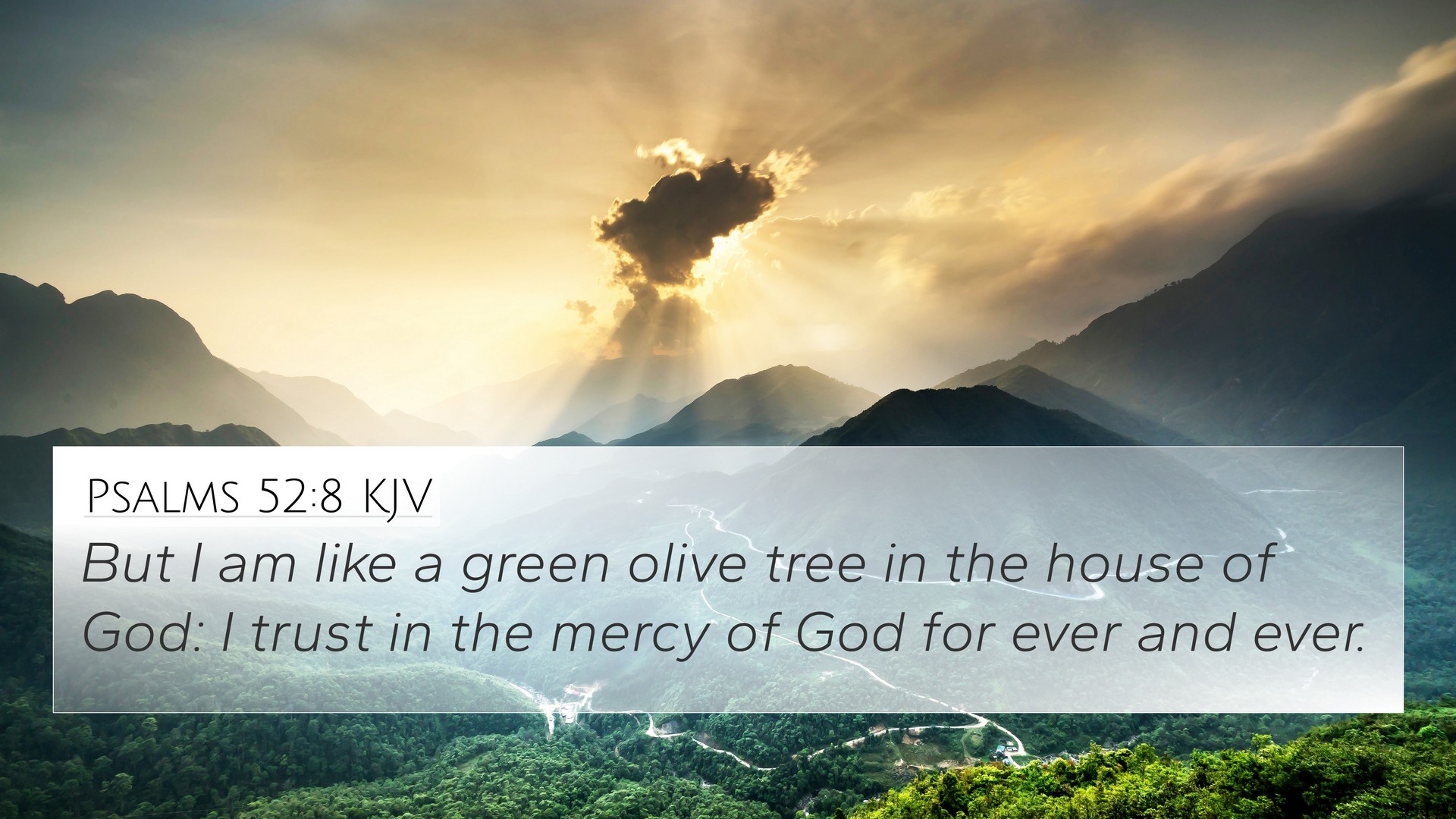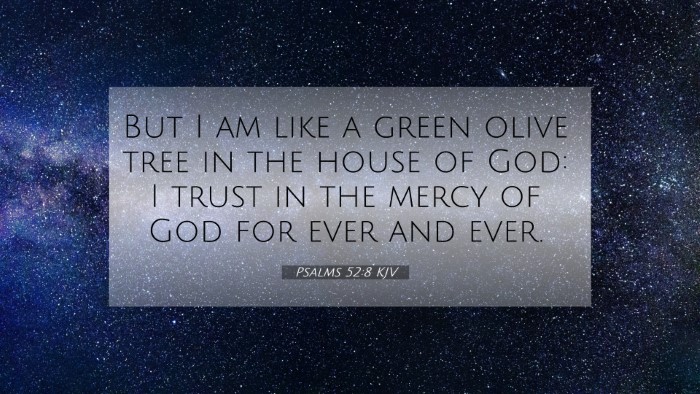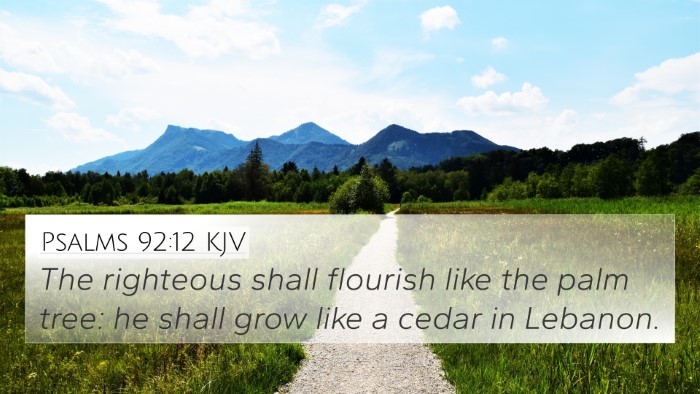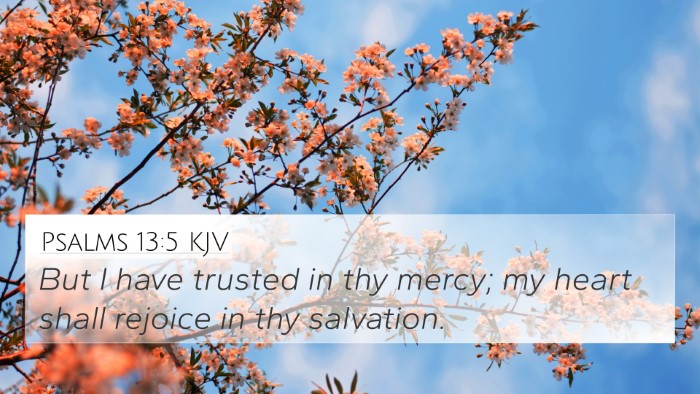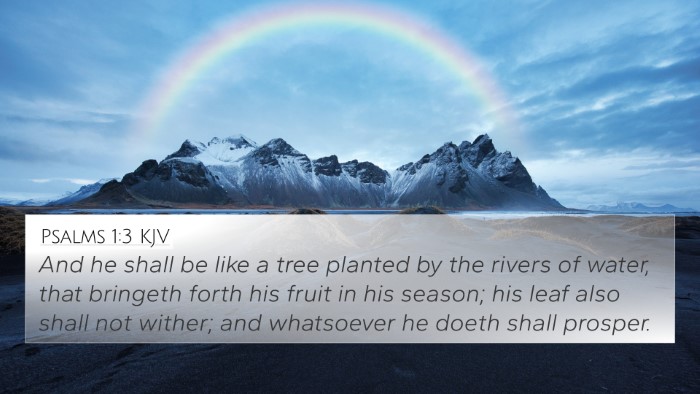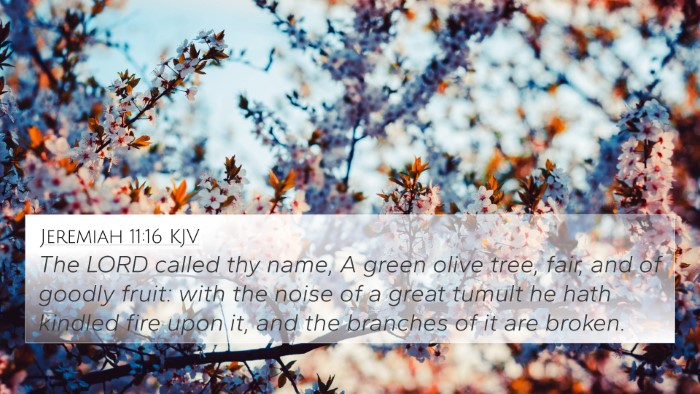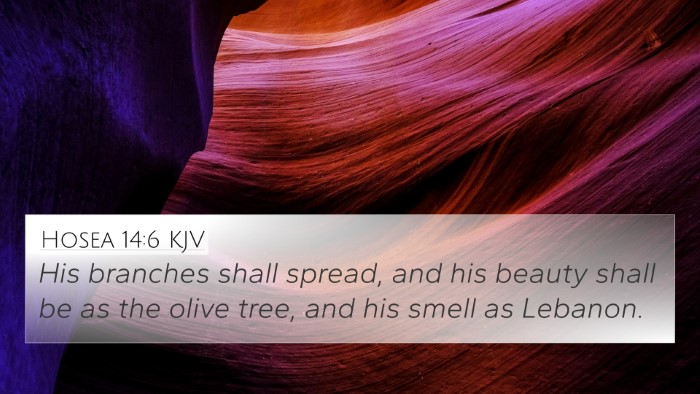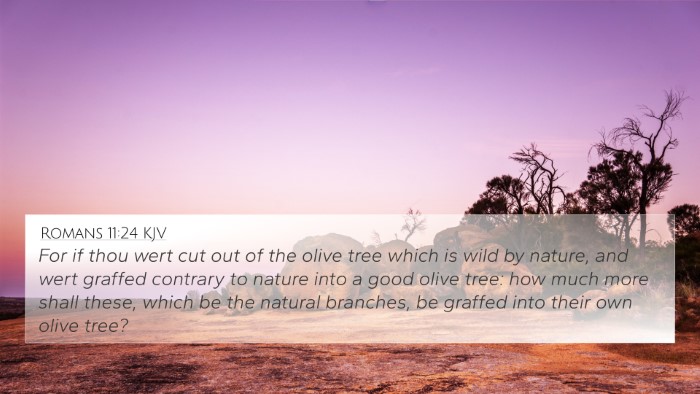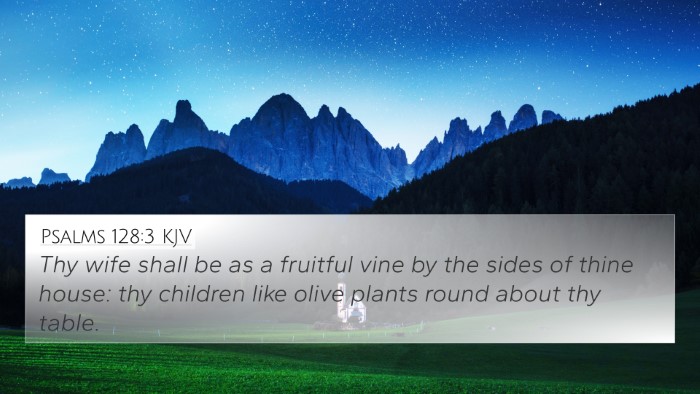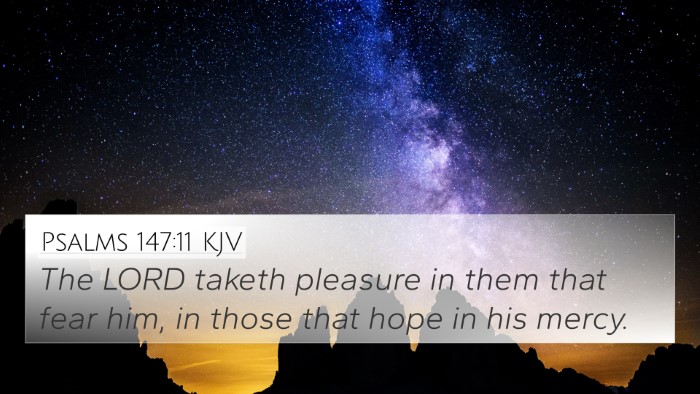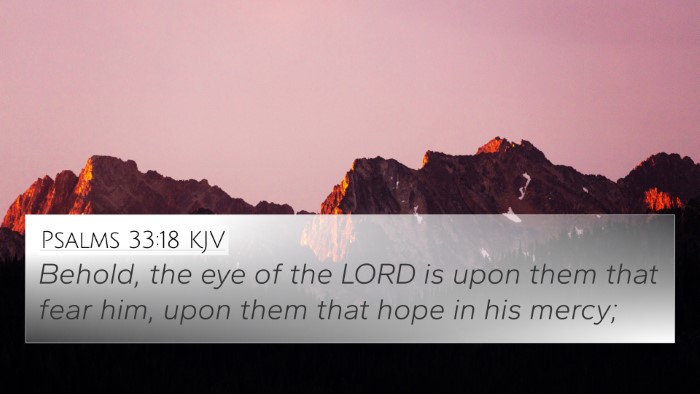Understanding Psalms 52:8
Psalms 52:8 states:
"But I am like a green olive tree in the house of God: I trust in the mercy of God for ever and ever."
Verse Meaning and Explanation
This verse is a powerful expression of faith and resilience in the face of adversity. In this text, the psalmist draws a metaphorical comparison between himself and a green olive tree, symbolizing vitality, endurance, and stability within the house of God.
Key Insights from Commentaries
- Matthew Henry: Matthew Henry emphasizes the olive tree as a symbol of peace and prosperity. He notes that just as an olive tree can thrive in tumultuous conditions, the psalmist trusts in God's steadfast mercy, portraying a deep-rooted confidence in divine support amidst struggle.
- Albert Barnes: Barnes explains that the imagery of the olive tree represents a faithful follower of God. The psalmist contrasts his rootedness in faith with the fate of the wicked, reinforcing the idea that true security and nourishment come from God alone.
- Adam Clarke: Clarke draws attention to the flourishing nature of the green olive tree, indicating that the psalmist's trust in God's mercy leads to spiritual growth and sustainability. He suggests that this trust is not only personal but serves as an example to others seeking refuge in God's goodness.
Thematic Connections and Bible Cross-References
This verse invites exploration of multiple themes including faith, security in God, and the contrasting outcomes for the righteous and the wicked. Below are key cross-references that illuminate its meaning:
- Psalms 1:3: "And he shall be like a tree planted by the rivers of water..." - Similar metaphor about stability and thriving in God’s presence.
- Psalms 92:12-14: "The righteous shall flourish like the palm tree..." - Further emphasizes the flourishing nature of the righteous.
- Jeremiah 17:7-8: "[Blessed is the man who trusts in the Lord]... for he shall be as a tree planted by the waters." - Highlights trust in God leading to prosperity and resilience.
- Romans 11:17-18: "And if some of the branches be broken off, and thou, being a wild olive tree, wert grafted in..." - Discusses belonging in God’s family and thriving spiritually.
- Matthew 5:14: "Ye are the light of the world. A city that is set on a hill cannot be hid." - Identifies the visibility and impact of those who trust in God.
- 1 Peter 2:4-5: "To whom coming, as unto a living stone, disallowed indeed of men, but chosen of God..." - The chosen faithful are likened to living stones, reflecting eternal strength.
- Hebrews 13:5-6: "...for he hath said, I will never leave thee, nor forsake thee." - Reflects assurance and trust in God’s enduring presence.
Comparative Analysis and Thematic Connections
The connection between these verses underscores a common biblical theme of God's unwavering support for those who place their trust in Him. The olive tree metaphor appears across various scriptures, emphasizing spiritual health which stems from dependence on God.
How to Use Bible Cross-References
Exploring cross-references is crucial in enriching our understanding of scripture. By linking verses across different books of the Bible, one can:
- Deepen comprehension: By recognizing common themes, one can grasp the narrative arc of scripture.
- Support spiritual growth: Identifying verses related to personal experiences and challenges provides encouragement and reinforcement of faith.
- Develop sermon themes: Preachers can use interconnected verses to build impactful messages and teachings.
Conclusion: Faith in God’s Mercy
Psalms 52:8 is not just a declaration of faith; it serves as a reminder of the blessings and sustainability found in God's presence. The comparisons drawn between the psalmist's trust and the imagery of a flourishing olive tree guide us in our journey of faith, emphasizing the importance of spiritual rootedness and connection with God.
